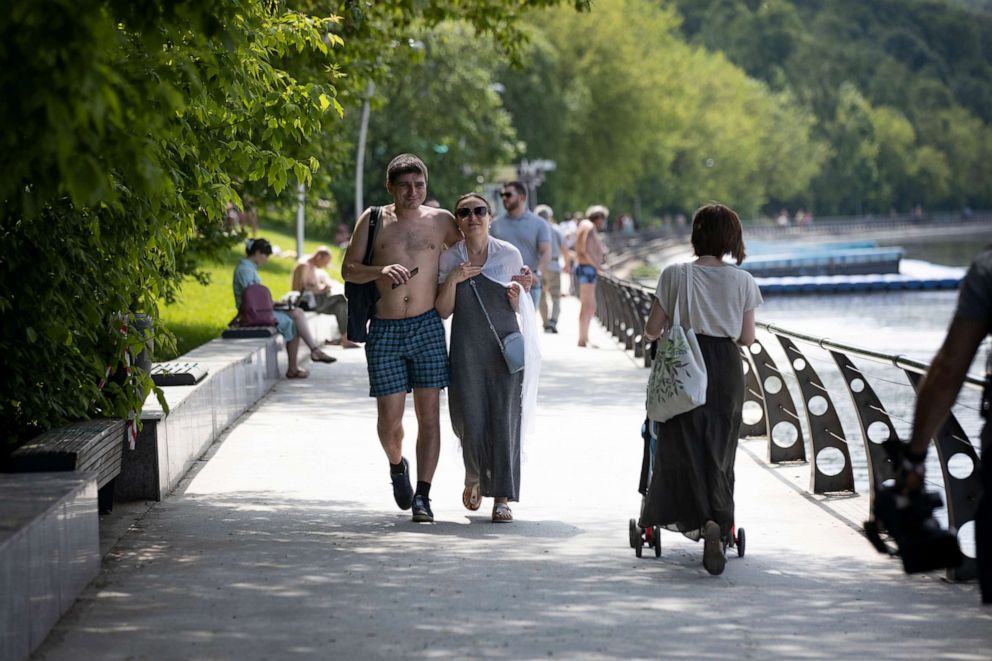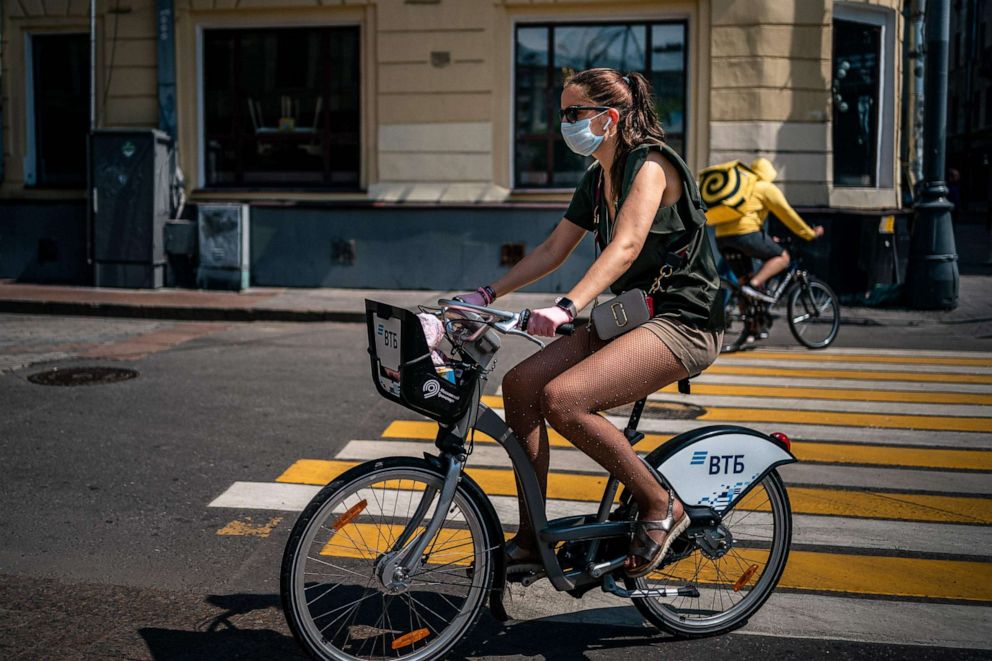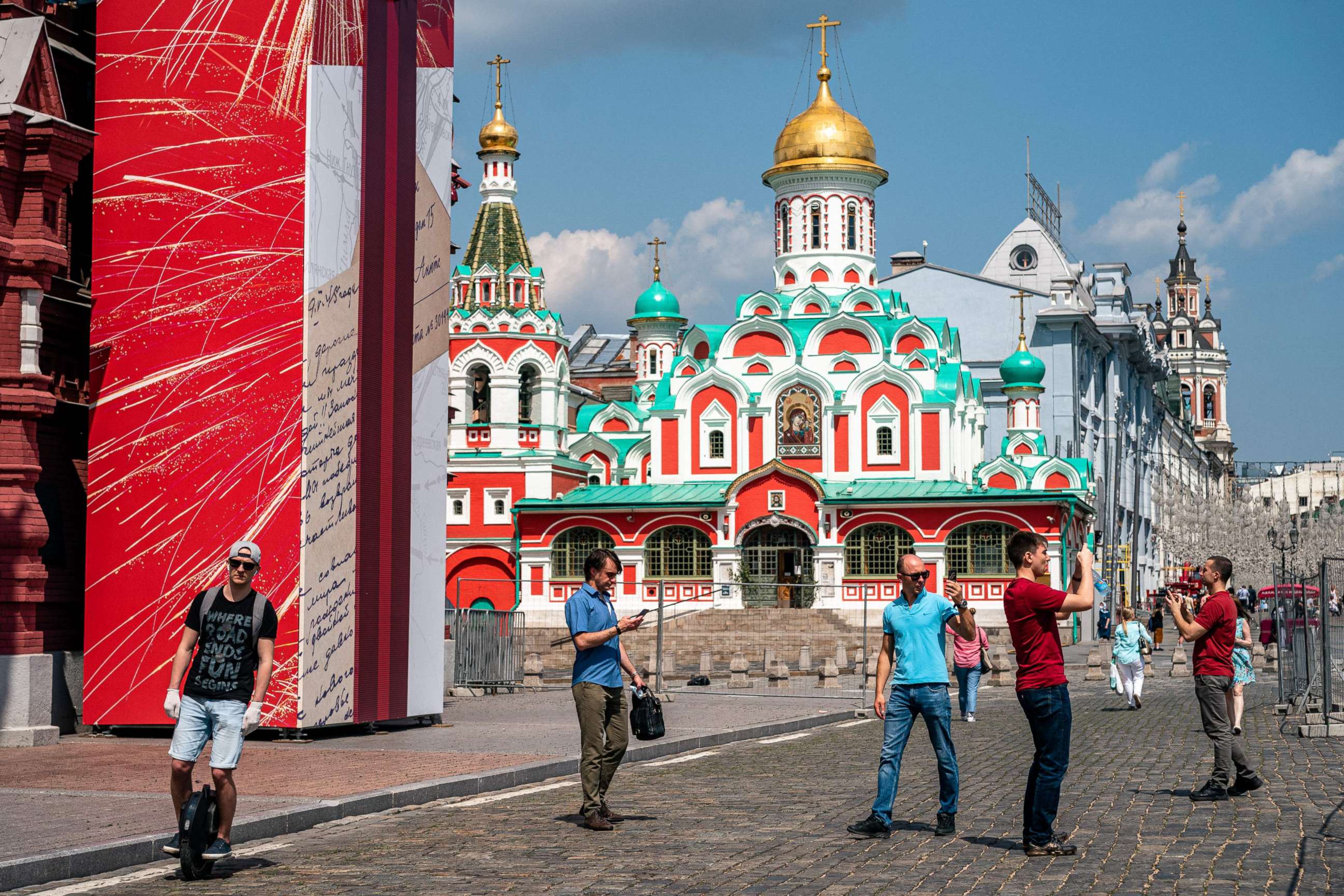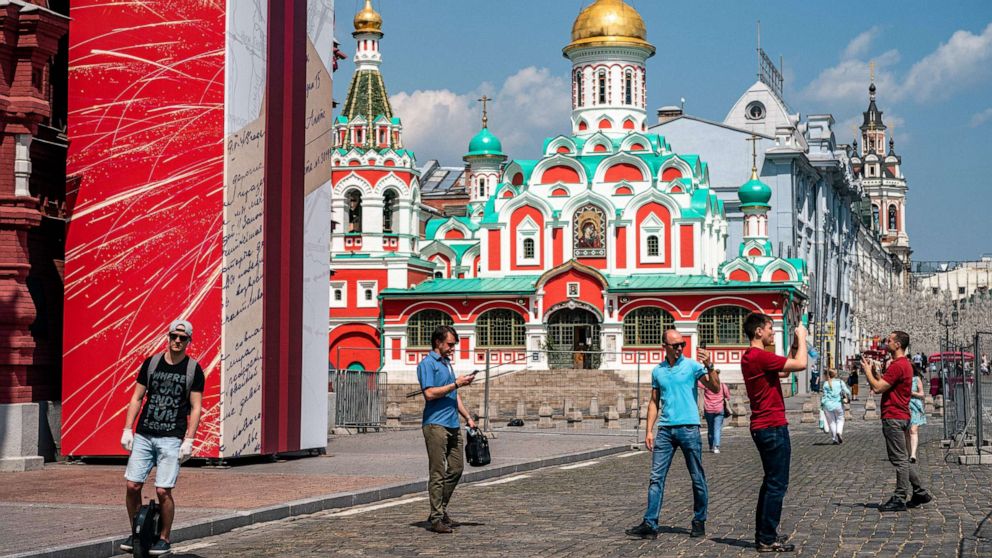Strict lockdown measures in Moscow lifted as Russian coronavirus cases approach half a million
MOSCOW -- Despite its high number of cases, the citizens of Moscow began to resume their normal lives on Tuesday as the Russian capital is ending a strict lockdown that has been in place for more than two months.
As of today, more than 12 million Moscow residents, in Europe’s most populated city, will be able to walk and use public transport without digital passes or any other restrictions.
“These are my first steps out, for pleasure, and it’s a gingerly feeling,” Marina, 71, who is a retired architect, told ABC News in Moscow’s central Taganka district. “But that’s what freedom tastes like at the time of coronavirus.”

“We just have to make sure we don’t grow suddenly too incautious,” she explained as she walked to take a subway for the first time in ten weeks. “The possibilities of the life we’ve been confined to came with such limits that I don’t know how to even put into words, so we have to be careful, wear masks and gloves at all times."
Traffic jams quickly returned to Moscow's congested roads as residents came out onto the streets on a warm and gloriously sunny day in the Russian capital. It was only a week ago that the streets were completely empty and the only sound you could hear was an empty public bus passing.
Taking to the streets, there were almost no tourists in sight on the streets of Moscow. The first steps out of a quarantine into the public space for pleasure seemed liberating, joyful, but above all -- necessary.
Walking through the historic Taganka neighborhood, what stood out about the sea of people were the amount of masks and, sporadically, gloves: firmly on, firmly off, below or above the nose, hanging off of one ear as an earring. Needless to say, Moscow is not really Moscow when the faces of its people are covered.
Despite still recording around 2.000 cases of new infections every day, Moscow Mayor Sergei Sobyanin, a loyal ally of President Vladimir Putin, announced Monday in a blog post titled “Returning to Normal Life” the end of the unpopular lockdown to contain the spread of COVID-19 .

In the blog, Sobyanin, who only last week said it would take a year to get back to pre-crisis life, explained the restrictions will gradually be lifted over the coming two weeks.
"We have prevented an explosion of the pandemic, have provided mass testing and medical care to sick residents," he said. "For several weeks now, slowly but surely the pandemic has been on the decline. The number of infections is decreasing, and more people are being discharged from hospitals than are being admitted. Step by step, this allows us to return to normal life.”
Moscow has been on a very harsh lockdown since late March when Sobyanin severely restricted citizens' movements and closed all businesses except for essential ones.
Kremlin critics have accused Sobyanin of rushing to lift restrictions for political reasons. Due to the pandemic, the epicenter of which is in Moscow, President Putin has rescheduled a high-profile military parade on the Red Square to mark the 75th anniversary of victory in WWII from May 9 for June 24 and a vote on constitutional reforms, which could allow Putin to remain president until 2036, for a week later on July 1.

To date, Russia has a total coronavirus caseload of 485,253, he third-hightest number of reported coronavirus cases after the United States and Brazil, with 6,142 deaths. Moscow reported 1,572 new virus cases on Tuesday, its lowest tally since April 16.
Hairdressers and beauty salons all reopened today, while dentists, public facilities like museums and libraries, cafes and restaurants will be able to open outdoor terraces from June16..The third phase, which starts on June 23, a day before the military parade, will see indoor dining resume and facilities like gyms and swimming pools reopen.
“Well that’s that, we vanquished coronavirus,” Kira Yarmysh, the spokesperson for opposition leader Alexey Navalny, tweeted. “Just two weeks before the parade and vote, what a lucky break.”




